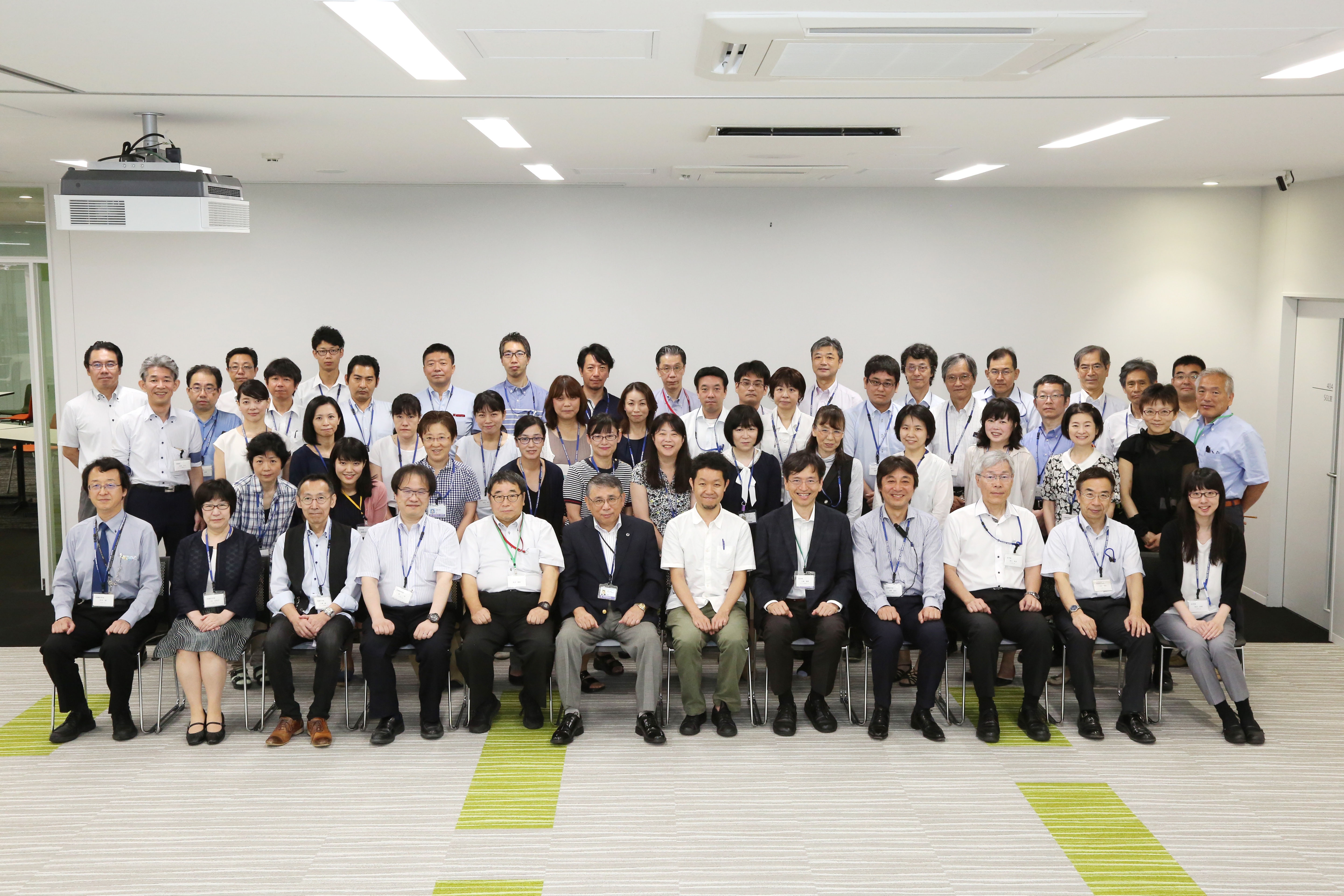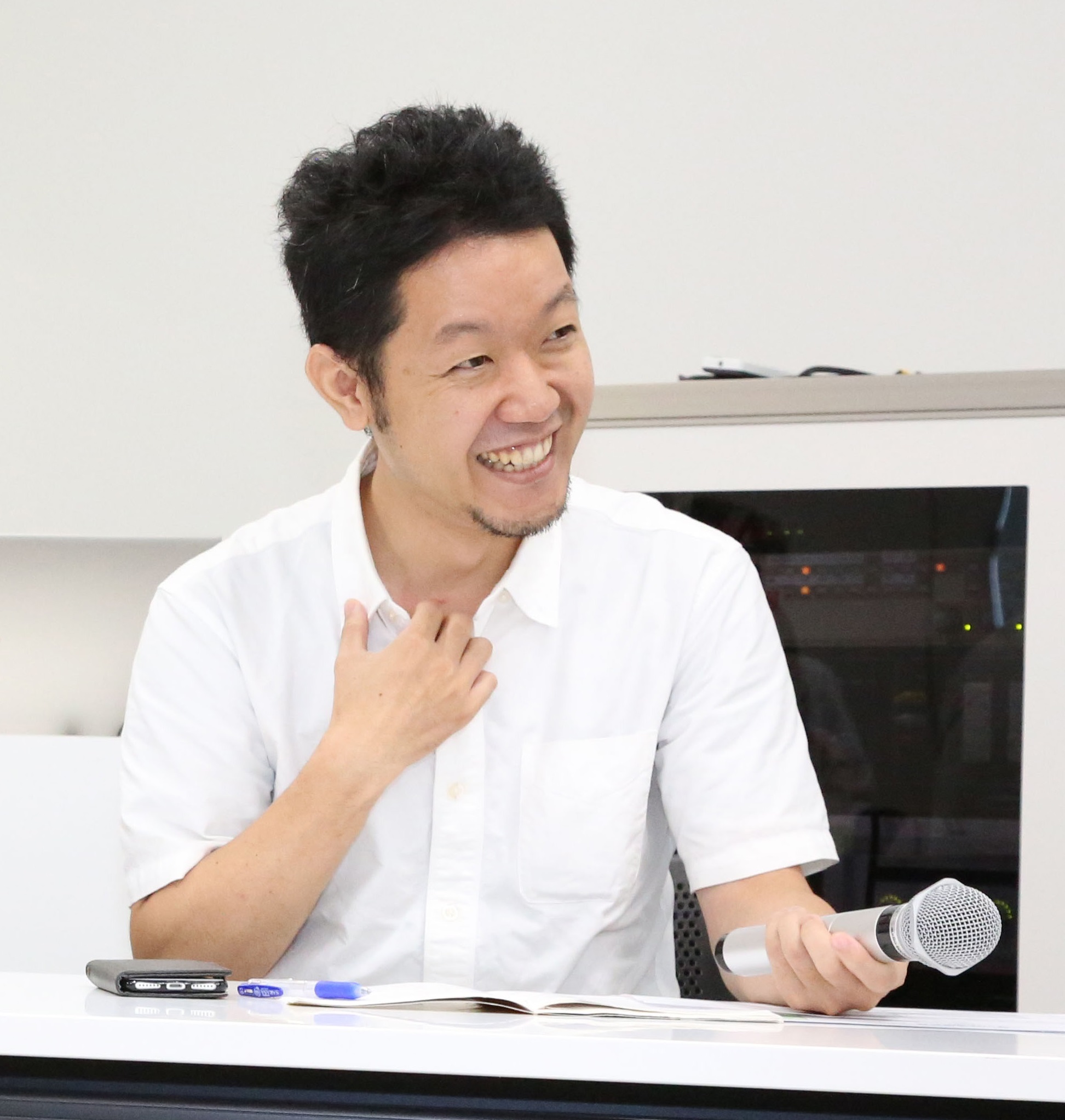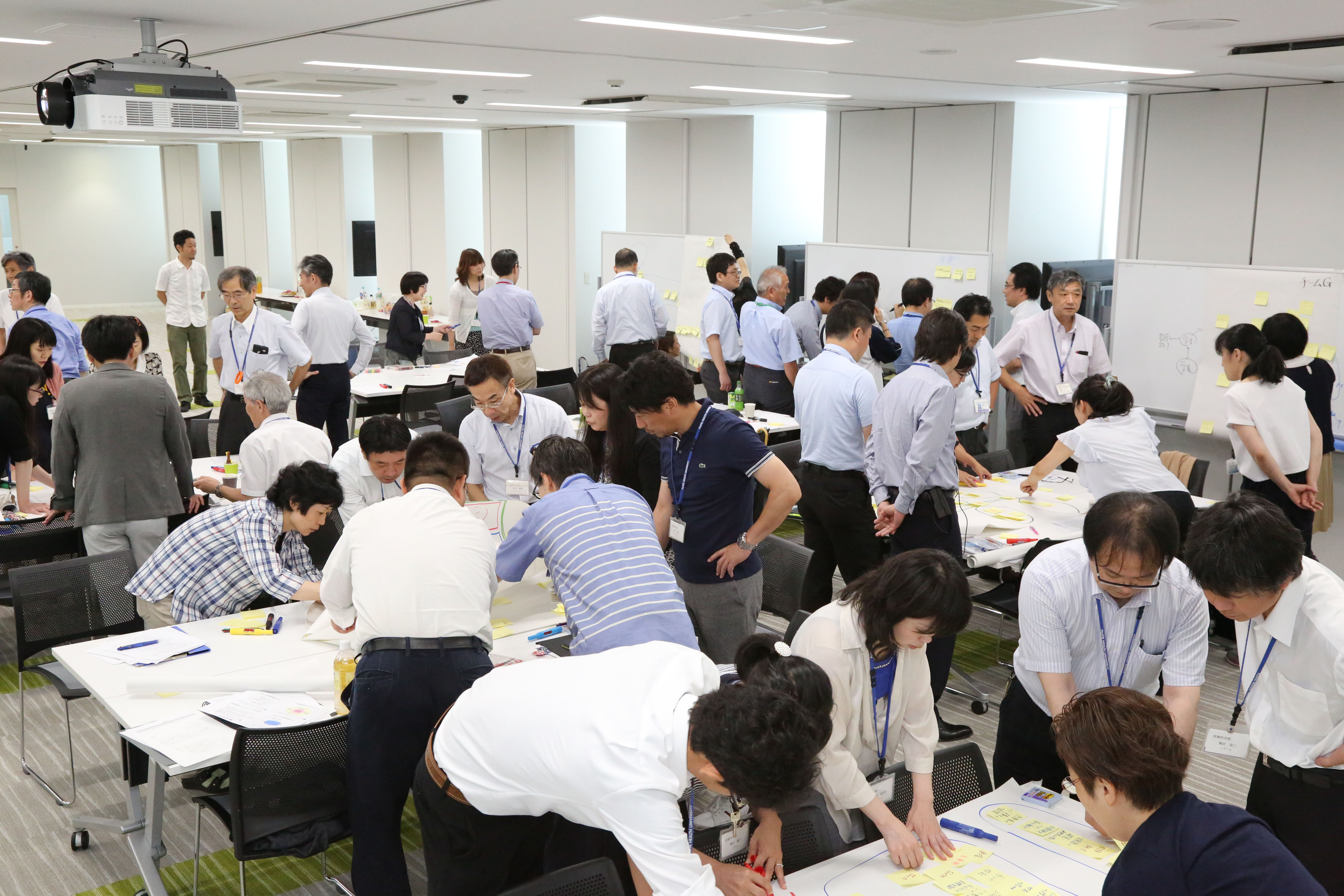2018 Academic Year: The Assembly Education Program Workshop
| The Assembly Education program workshop was held on Sunday, July 22nd, 2018, the hottest day of the summer with a highest recorded temperature of 39.5 degrees Celsius in Nagoya. The theme was “the step-by-step construction of The Assembly Education program.” With Prof. Junji Haruta (from the Department of Planning and Coordination for Medical Education (PCME), the School of Medicine, University of Tsukuba) as our lecturer, 45 participants (including one student representative) worked hard, with the aim of the further development of our unique Assembly Education program. |
| Date and Time: | Sunday, July 22nd, 2018, 9:20-16:30 |
| Place: | Active Learning Room, 412, 4th floor, the University Bldg. No. 3 |
| Participants: | Academic staff in charge of Assemblies I, II, III and IV, and a student representative |
| Theme: | Phased construction of The Assembly Education program |
| Lecturer: | Prof. Junji Haruta (Department of Planning and Coordination for Medical Education (PCME), School of Medicine, University of Tsukuba) |
| Content: | The Assembly Education program is based on interprofessional education. To make the goal of The Assembly Education program easier to understand, attendants visualized it simply, in “one chart.” Then, issues associated with the current Assembly Education (Assembly I, II, III and IV) courses were identified, and concrete solutions to these were considered. Based on the outcome of the workshops, The Assembly Education program will be reviewed for next year. |
Workshop (Morning)
| The workshop started with an address from the President, followed by a symposium (Understanding The Assembly Education program: Goals and Current State of Affairs), which deepened participants’ understanding of the activities within the current Assembly I to IV courses. Following this, Prof. Junji Haruta, the invited lecturer, delivered a valuable lecture entitled “Continuous Interprofessional Education.” |


Associate Professor. Junji Haruta
| Biography | |
| 2004: | Graduated from the Medical Course, School of Medicine, Asahikawa Medical University, worked for the Tokyo Hokuto Ouji Co-op Hospital |
| 2011: | Received a PhD in Medicine (Internal Medicine), Graduate School of Medicine, the University of Tokyo |
| 2015: | Lecturer in the General Practice and Primary Care Group, University of Tsukuba Hospital |
| 2018: | Lecturer, Medical Education, Faculty of Medicine, School of Medicine, University of Tsukuba |
Affiliated academic societies:
◆Japan Society for Medical Education (former member of the Community Medicine and Interprofessional Collaboration Education Committee, Medical Education Specialist Committee and Learning Strategy Committee)
◆Japan Association for Interprofessional Education (member of the IPE Promotion Committee, member of the editorial committee for “The Journal of Interprofessional Collaboration in Health and Social Care”)
◆Japan Primary Care Association (member of the Board of Certification for Family Physicians, member of the editorial committee for their journal “Primary Care” - a Japanese language publication)
Other activities:
◆July 2013–March 2015: Project leader of the survey and questionnaire development group of the Development and Cooperation Committee for the program to develop core specialists with the necessary skills to conduct “interprofessional collaboration” that supports regional medical care and nursing care through the project “Strategic Promotion of the Development of Core Specialists in Growth Sectors and Other Areas,” spearheaded by MEXT (the Ministry of Education, Culture, Sports, Science and Technology)
◆Japanese Association of Social Workers in Health Services (an external member of the Ethical Committee)
◆Japan Society for Medical Education (former member of the Community Medicine and Interprofessional Collaboration Education Committee, Medical Education Specialist Committee and Learning Strategy Committee)
◆Japan Association for Interprofessional Education (member of the IPE Promotion Committee, member of the editorial committee for “The Journal of Interprofessional Collaboration in Health and Social Care”)
◆Japan Primary Care Association (member of the Board of Certification for Family Physicians, member of the editorial committee for their journal “Primary Care” - a Japanese language publication)
Other activities:
◆July 2013–March 2015: Project leader of the survey and questionnaire development group of the Development and Cooperation Committee for the program to develop core specialists with the necessary skills to conduct “interprofessional collaboration” that supports regional medical care and nursing care through the project “Strategic Promotion of the Development of Core Specialists in Growth Sectors and Other Areas,” spearheaded by MEXT (the Ministry of Education, Culture, Sports, Science and Technology)
◆Japanese Association of Social Workers in Health Services (an external member of the Ethical Committee)
Workshop (Afternoon)

| In the afternoon session, “Group Work 1: Simply visualizing the goal of The Assembly Education to make it easier to understand” was held based on the symposium and Prof. Haruta's lecture from the morning. In this group work activity, plentiful discussion took place in order to reconfirm the goals of The Assembly Education program and step-by step activities required to achieve these goals. In the following session, “Group Work 2: Identifying the Issues associated with The Assembly Education Program,” enthusiastic discussion took place as to the potential challenges associated with the implementation of activities that will achieve the program goals, as well as the possible issues of the current Assembly Education program. On this occasion, the workshop ran out of time to discuss solutions to the challenges and issues. Solutions are to be discussed based on the outcome of this workshop’s discussion at the 2nd workshop scheduled for Thursday, August 9th. |

